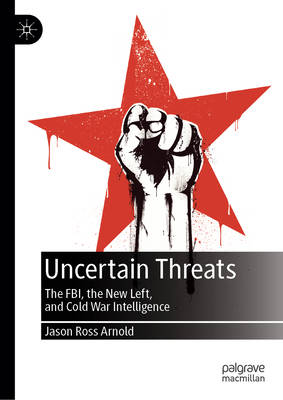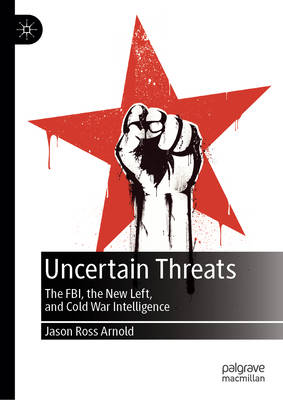
Bedankt voor het vertrouwen het afgelopen jaar! Om jou te bedanken bieden we GRATIS verzending (in België) aan op alles gedurende de hele maand januari.
- Afhalen na 1 uur in een winkel met voorraad
- In januari gratis thuislevering in België
- Ruim aanbod met 7 miljoen producten
Bedankt voor het vertrouwen het afgelopen jaar! Om jou te bedanken bieden we GRATIS verzending (in België) aan op alles gedurende de hele maand januari.
- Afhalen na 1 uur in een winkel met voorraad
- In januari gratis thuislevering in België
- Ruim aanbod met 7 miljoen producten
Zoeken
Uncertain Threats
The Fbi, the New Left, and Cold War Intelligence
Jason Ross Arnold
Hardcover | Engels
€ 213,95
+ 427 punten
Omschrijving
What if the FBI's surveillance of the New Left wasn't only about repression and cynical self-interest? This book revisits one of the most controversial episodes of the Cold War: the FBI's counterintelligence investigations into the activist leaders of SDS and other radical groups. While scholars have rightly emphasized political overreach, constitutional violations, and the Bureau's institutional self-interest, newly declassified documents reveal that it also possessed a stream of intelligence -- often fragmentary, sometimes credible -- that pointed to international ties many scholars have overlooked or discounted. Through close historical analysis of this evolving intelligence picture, the book complicates the dominant narrative of Hoover-era surveillance. It shows how the FBI and other agencies perceived the New Left's developing connections to Cuba, North Vietnam, and other Communist powers, and why they came to see those ties as potential counterintelligence threats. Rather than defending the Bureau's conduct, the book seeks to understand it on its own terms, emphasizing how counterintelligence agencies operate amid deep uncertainty and limited oversight. In doing so, it offers a new perspective on the internationalization of the New Left, the nature of foreign influence, and the machinery of Cold War security. A work of historical and analytical recovery, it challenges prevailing narratives in U.S. political history, intelligence studies, and the historiography of the 1960s.
Specificaties
Betrokkenen
- Auteur(s):
- Uitgeverij:
Inhoud
- Aantal bladzijden:
- 234
- Taal:
- Engels
Eigenschappen
- Productcode (EAN):
- 9783031980862
- Verschijningsdatum:
- 2/10/2025
- Uitvoering:
- Hardcover
- Formaat:
- Genaaid
- Afmetingen:
- 142 mm x 201 mm
- Gewicht:
- 430 g

Alleen bij Standaard Boekhandel
+ 427 punten op je klantenkaart van Standaard Boekhandel
Beoordelingen
We publiceren alleen reviews die voldoen aan de voorwaarden voor reviews. Bekijk onze voorwaarden voor reviews.









